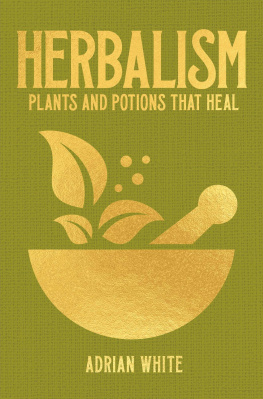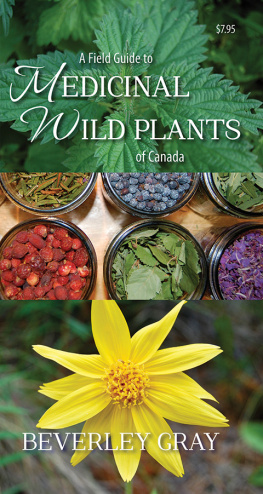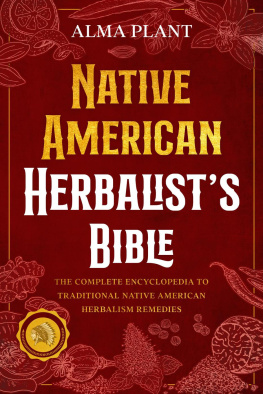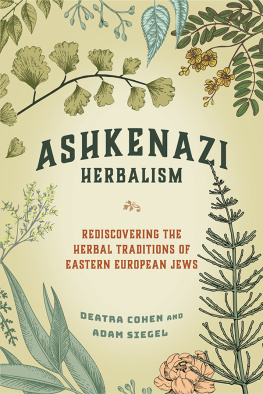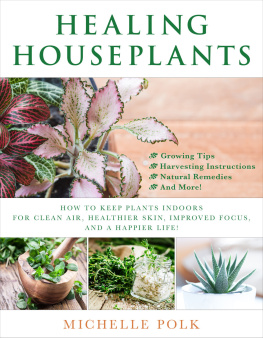
ACKNOWLEDGEMENTS
Much thanks to the herbalists, friends, experts, growers, chefs and other specialists who contributed and shared their own creations to this book for others to learn and benefit from in their own health and healing. Most thanks of all to the ancient and ancestral peoples the world over who developed and kept this lore for us to use and benefit from.
INTRODUCTION
HISTORY OF HERBALISM
L ong before modern medicine, there was herbalism though not as long ago as you might think. In the Western world, and in the United States specifically, herbal medicine only went out of vogue as recently as the 19th century. Before that, the use of herbs was the dominant form of healing.
Herbal medicine still dominates healthcare on the planet; many Westerners just dont know it. It is eclipsed by pharmaceuticals, hospitals, allopathy, and more conventional methods that have been scientifically tested and sold as more effective than simple plants in our everyday lives. According to the World Health Organization (WHO), 80% of people around the globe still use herbal or botanical medicines as part of their primary healthcare. This includes people in developing countries for whom modern medicine may not be an option, along with indigenous, cultural or ethnic groups holding on to traditional plant-based healing practices from centuries past. It also includes mainstream medical practices that have either always integrated or are now rapidly integrating herbal medicine as part of everyday treatment in non-Western parts of the world. Some examples include Traditional Chinese Medicine (TCM), Ayurvedic practices in Asia, and some European countries where prescriptions for herbs are again being approved by doctors. Last but not least, it includes herbal practitioners, home herbalists, kitchen witches and country doctors who have held on to herbal traditions left over from the ancient Western world.
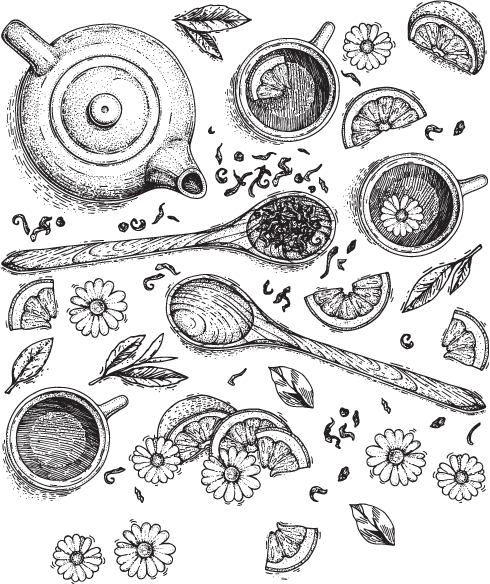
So why is herbalism still around, if modern medicine seems to work better? Because herbs have always worked, and still do just in a different way, and one that has been lost to popular Western understanding. Westerners now have a chance to look at the world of herbalism with fresh eyes. Westerners like myself can establish our own herbal traditions in a new and modern way, while nodding to our own ancestors use of plant medicines and nutrition first and foremost, while respecting the contributions other racial and indigenous traditions have mastered, protected and survived with for centuries. It is important to note that some contributions from minorities have an undeniably bloody history that can no longer go unmentioned in herbal works penned by the non-indigenous and non-POC, as we work to decolonize herbalism understanding.
***
My first brush with herbal healing took place while travelling in a remote area of Ecuador, in the Andes, where many people live to be over 100. I didnt go there to learn about herbal healing, but one day I was injured. With medical services and hospitals a half-hour away by horseback and an hour away by bus, it was my first time experiencing what medicine was like for the 80% of the world that relies on botanical medicine. I was quick to join that statistic afterward: locals showed me how to identify a plant (distantly related to black pepper and kava kava) that could be boiled into a dark tea for pulling out and cleansing infections. Long story short, without the help of that herb and the natives knowledge of it and generosity in sharing it with me I could have very well lost my foot.
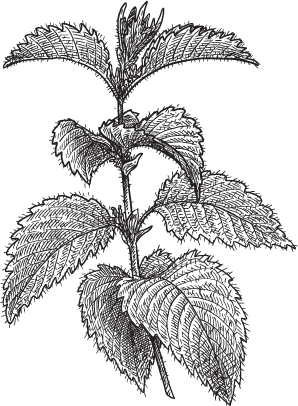
Ive seen herbs work in dramatic ways, and in much subtler yet still powerfully effective ways. Some herbs, like that South American one, work like a tsunami, while others work slowly, over time, until one day you realize that some aspect of your health has been restored and transformed. Ive seen herbs work quickly to help symptoms like allopathic medicine (think Ibuprofen for inflammation, for example) but also provide the body with vitamins, minerals, antioxidants and phytonutrients that can help prevent issues. Ive felt my energy return and anxiety fade from being burnt out at a highly demanding, stressful job after weeks of consuming stinging nettle daily. Ive felt soothed and restored with a simple cup of lemon balm tea right before a job interview when my stomach was in knots. Ive seen lions mane stop tremors and spasms; Ive seen remedies like agrimony settle allergic reactions, an overactive liver and even an asthma attack in seconds. Ive seen estrogenic herbs, like angelica, rid a person of terrible acne.
The more incredible thing about what Ive said above: these are personal experiences, and are not necessarily health claims (though herbs can and definitely do work scientifically and predictably). I encourage you to try out herbs (safely) in the contexts for which they have been scientifically researched, as well as for their folk uses accumulated over hundreds if not thousands of years. However, as some practised herbalists will tell you, plants can form very special almost spiritual and definitely near magickal relationships with those who get taken up with them. You could even say that herbs get taken up with those who use them, too, playing a mysterious role in their effects. While this is true for myself and many other seasoned herbalists out there, I obviously have to recommend that you only experiment and use herbs in this way safely and at your discretion; any reported benefits from approaches like these are completely subjective. And, on a scientific (not just spiritual or spooky) level, certain herbs work better for some people, but not so well for others.
Novice herbalists find themselves attracted to a certain arsenal of healing herbs for their own uses, based on their own experiences with them. And the beauty and magick of it all is that every herbalists methodology, apothecary, medicine cabinet, materia medica or whatever you call it will be different. The herbs you will learn about in this book are by no means all thats out there, or even considered a classic list. These are simply the ones Ive taken a shine to, which have worked for me, and which Ive also researched on a scientific basis. As a white Westerner, I have decided to choose predominantly Western herbal remedies that reflect my European ancestry, with a few exceptions like aloe vera (from Africa and the Middle East), lions mane (East Asia) and sumac (Native North America) that I couldnt help but feel a personal call to honour and write about mostly because of how efficaciously and powerfully I have experienced them in my own life.
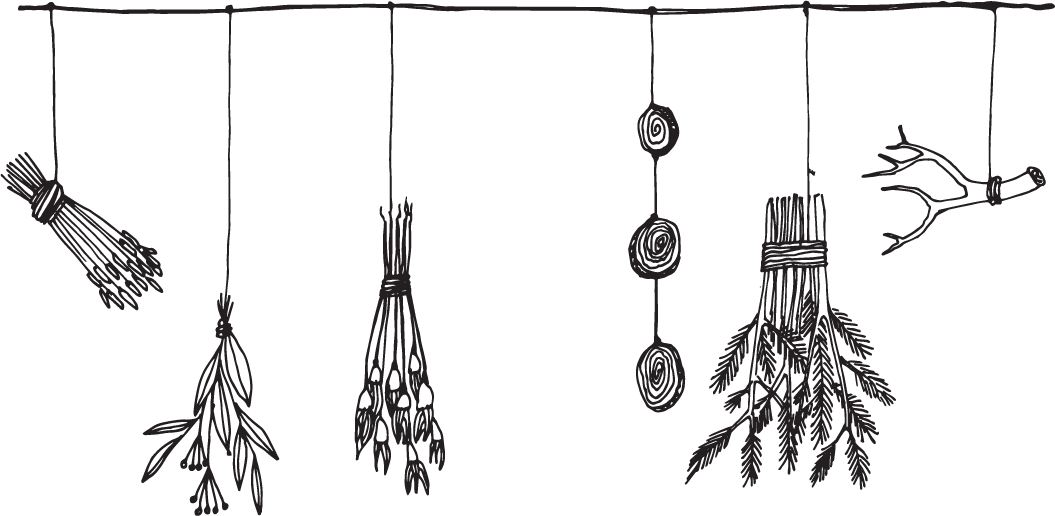
This book is an introductory reference for those who may not only be interested in simple herbalism for self-care at home, but may also eventually be interested in building their own apothecaries, formulating herbal preparations, creating products, and digging into the nitty-gritty of actual, practical healing using botanicals. Here is a quick guide to using this book as a reference:

